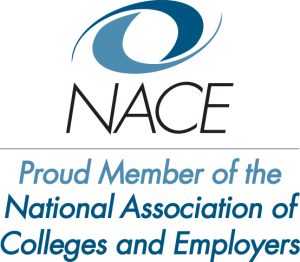How Career Assessments can Instantly Improve Fit-to-Job Hiring
The Why Behind PathwayU
PathwayU was built to help students find their purpose in life. Our platform is based in science and academia. Our mission is to help students and universities create pathways for all.
Our co-founders, Bryan Dik and Kurt Kraiger are the brains behind the technology and created this series to help explain the why behind PathwayU. Click here to download our e-book and set up a custom tour here.
It's Hard to Find Great Employees
Did you hear? There’s a war for talent. Of course, there was one a few years ago, and a few years before that. I actually detest that phrase because it implies winners and losers. The competition for capable workers (yes, not as sexy a term) is real for some jobs in some geographical locations. But there may be a way to not only attract top talent but do it in a way in which everyone wins (particularly your future workforce). It’s not a war, it’s survival of fit.
Think Fit, Not Just Talent
The primary strategy employers use to find potential workers is based on skills and experience. Every day on my car radio I hear ads for job board aggregators (you know who they are). “Post your job with us and we find hundreds of candidates for you based on … (wait for it) … keyword searches!” Is that really being innovative or strategic? Particularly if each aggregator is doing the same thing?
Worse, research in organizational psychology repeatedly shows that resume screening is not only inaccurate (e.g., Cole et al., 2009) but can lead to other negative outcomes such as reducing diversity. If everyone is searching for the same skills and experience, maybe we all lose.
A career assessment can help employers hire candidates who have the passion and motivation to stick around. Read @JobZology’s full article here: @JobZologyWhat’s the alternative? Well, what if employers hired on fit to the job in terms of candidates’ interests and values? There is a long history of vocational fit as a meaningful predictor of both individual and employer outcomes.
When we pursue careers that fit our interests and values, we work harder, we persist longer, we have greater occupational success, we even earn more money! When employers hire employees who fit their jobs, those employees are more satisfied, stay longer, and perform better.
Does that mean that skills and aptitudes are unimportant? Certainly not. For many jobs - brain surgeon, professional football player, architect - they are essential. But for many, many jobs in our economy, the desire to stay and the motivation to persist and learn the job may be the most important determinant of success. Fit-to-job helps you identify those candidates.
But I Already Do That!
With due respect, chances are you’re not. There are two major problems with the way most employers try to hire for fit. First, they try to hire on the basis of fit to culture. If you mapped “culture fit” as a search term over the last decade, you’d likely see a bell curve - it’s a concept that caught fire and then burned out. Why?
Frankly, it’s hard to do. What is the culture you are matching to? All the employees in your company? In a single location? On a particular floor? In the C suite or the front lines? Each answer might produce a different fit.
Second, too many employers continue to rely on “gut instinct” to assess fit. “I can just tell he/she is a good fit for us.” A counterexample I like to use is understanding that there are about 2.5 million weddings per year in the U.S.
I am going to go out on a limb and say in most of those, each party is spending more time and effort assessing fit than you did the last time you hired a customer service representative. Yet the divorce rate in the U.S. remains near 50%. This is not something we are good at as a country!
The Solution: Career Assessments
The same set of career assessments that guide students to their purpose and optimize their choice of a career path in school, could be used by employers to identify job candidates to fit the job. Intuitively, this should make sense.
A candidate who is a good fit for an accounting role is likely not a good fit for a graphic designer role. Again, I am not talking about skills and aptitudes, but what keeps this candidate motivated.
Have you ever had a job that felt like drudgery and it was difficult to find the motivation to just get up for work? And then you changed jobs that you found interesting and meaningful and you couldn’t wait to show up? The latter is the type of employee you’ll be hiring when you build career assessments that quantify fit-to-job into your employment pre-screening.
A Short Cut
If you are not ready to change your hiring methods, here is another trick you can use. Let the colleges and universities you recruit from do the work for you. If an area school is not using a career development platform as part of its career services, there’s a good chance a high percentage of its students are pursuing a career path that does not meet their purpose.
If they are smart enough, they’ll do well in school. But that is not the graduate you want to hire. On the other hand, if an area school IS using a platform like PathwayU, there is a much higher probability that their graduates not only have the aptitude to succeed, but the passion to be the kind of engaged employee you will want to hire.
Find the Right Fit with PathwayU
Determine if you are ready to build career assessments and fit-to-job into your pre-employment screening. And ask the career services departments at the schools you recruit from whether they are using PathwayU to help their students discover and pursue their purpose!
-1.png?width=288&height=67&name=PathwayU_PGLogo%20(1)-1.png)

-Sep-03-2021-07-24-03-31-PM.png?width=2400&name=PATH-FBLI-CCCU%20(1)-Sep-03-2021-07-24-03-31-PM.png)









